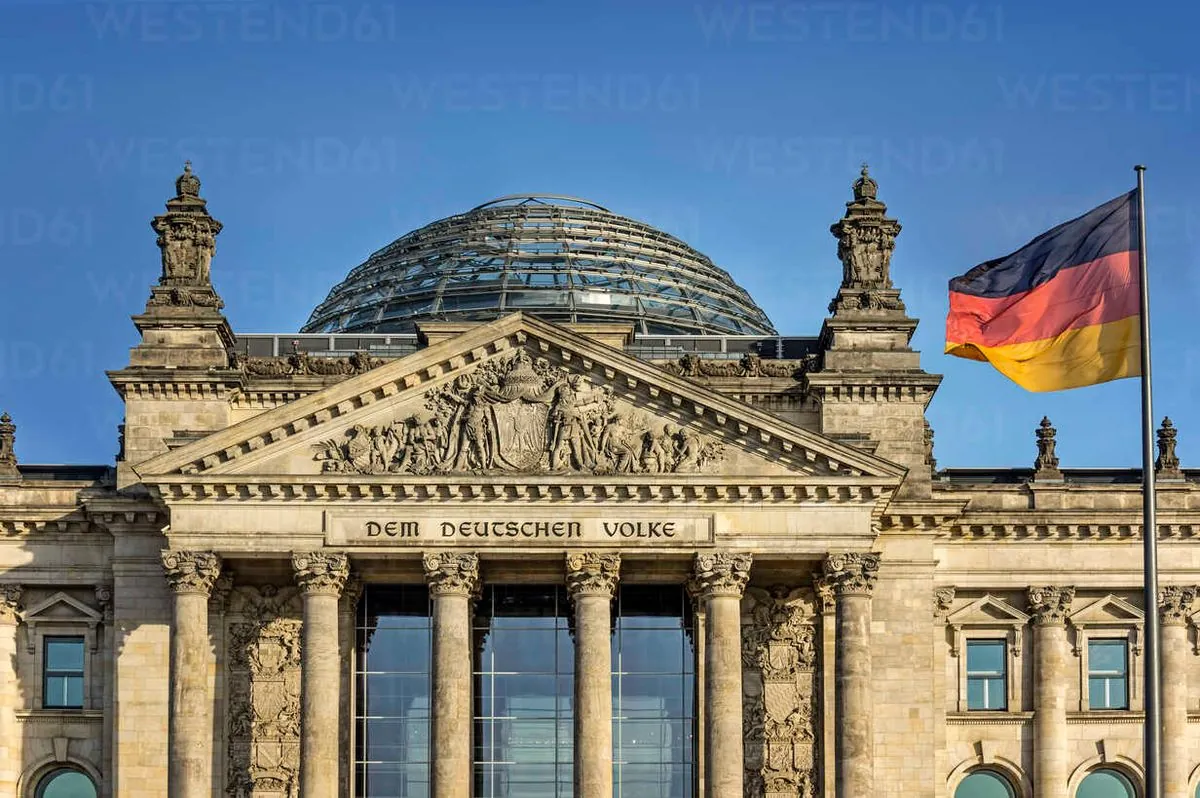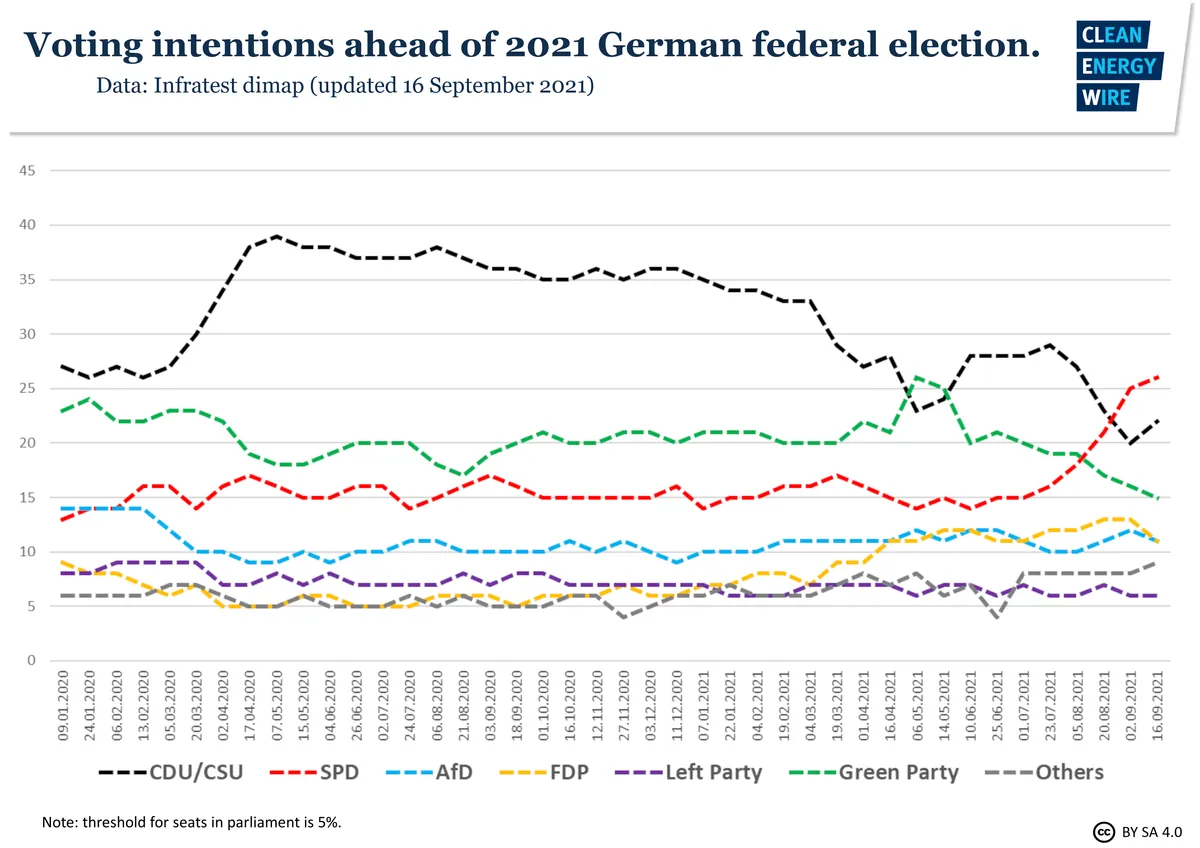German Conservatives Surge in Polls, Coalition Parties Struggle
Recent poll shows CDU/CSU at 33%, their highest in 3.5 years, while governing coalition parties collectively drop to 28%. Far-right AfD maintains second place with 19% support.

A recent poll conducted by INSA for Bild am Sonntag reveals significant shifts in Germany's political landscape. The survey, completed on September 14, 2024, indicates a surge in support for the opposition conservatives and a decline for the current governing coalition.
The Christian Democratic Union (CDU) and its Bavarian sister party, the Christian Social Union (CSU), collectively known as the Union, have reached their highest polling numbers in three and a half years. The alliance, which forms the main opposition in the Bundestag, now stands at 33% support, up from 31% just a week ago. This resurgence marks a significant milestone for the conservatives, who have been in opposition since December 2021.
In a concerning development for the government, the far-right Alternative for Germany (AfD) maintains its position as the second most popular party, with 19% of respondents indicating their support. The AfD, founded in 2013 as a Eurosceptic party, has seen its popularity grow despite controversy surrounding its policies and rhetoric.

Chancellor Olaf Scholz's Social Democratic Party (SPD) finds itself in a challenging position, securing only 14% of potential votes. The SPD, Germany's oldest political party with roots dating back to 1863, leads the current "traffic light coalition" government, named after the party colors of its members.
The coalition partners fare no better in the poll. The Greens, who emerged from the environmental movement in the 1980s, stand at 10%, while the Free Democratic Party (FDP), known for advocating free-market policies and civil liberties, barely crosses the 5% threshold required for parliamentary representation with 4% support.
Collectively, the three governing parties – SPD, Greens, and FDP – amass only 28% of the vote, their weakest showing since forming Germany's first three-party federal coalition in December 2021. This decline raises questions about the coalition's ability to implement its agenda and maintain public confidence.
The Sahra Wagenknecht Alliance (BSW), a relatively new leftist party founded in 2023 by former Left Party politician Sahra Wagenknecht, maintains its 10% support from the previous week. This steady performance suggests a consolidation of its voter base.
It's important to note that Germany employs a mixed electoral system, combining first-past-the-post voting with proportional representation. The Bundestag, which typically has around 700 members, plays a crucial role in electing the Chancellor. While these poll results do not directly translate to seat allocations, they provide insight into the current political mood in Germany.
As state elections continue to influence national politics, and with regular polling conducted by various institutes and media outlets, the German political landscape remains dynamic. The surge of the conservatives and the sustained support for the far-right AfD may prompt reassessment and strategy adjustments across the political spectrum as parties prepare for future electoral challenges.


































